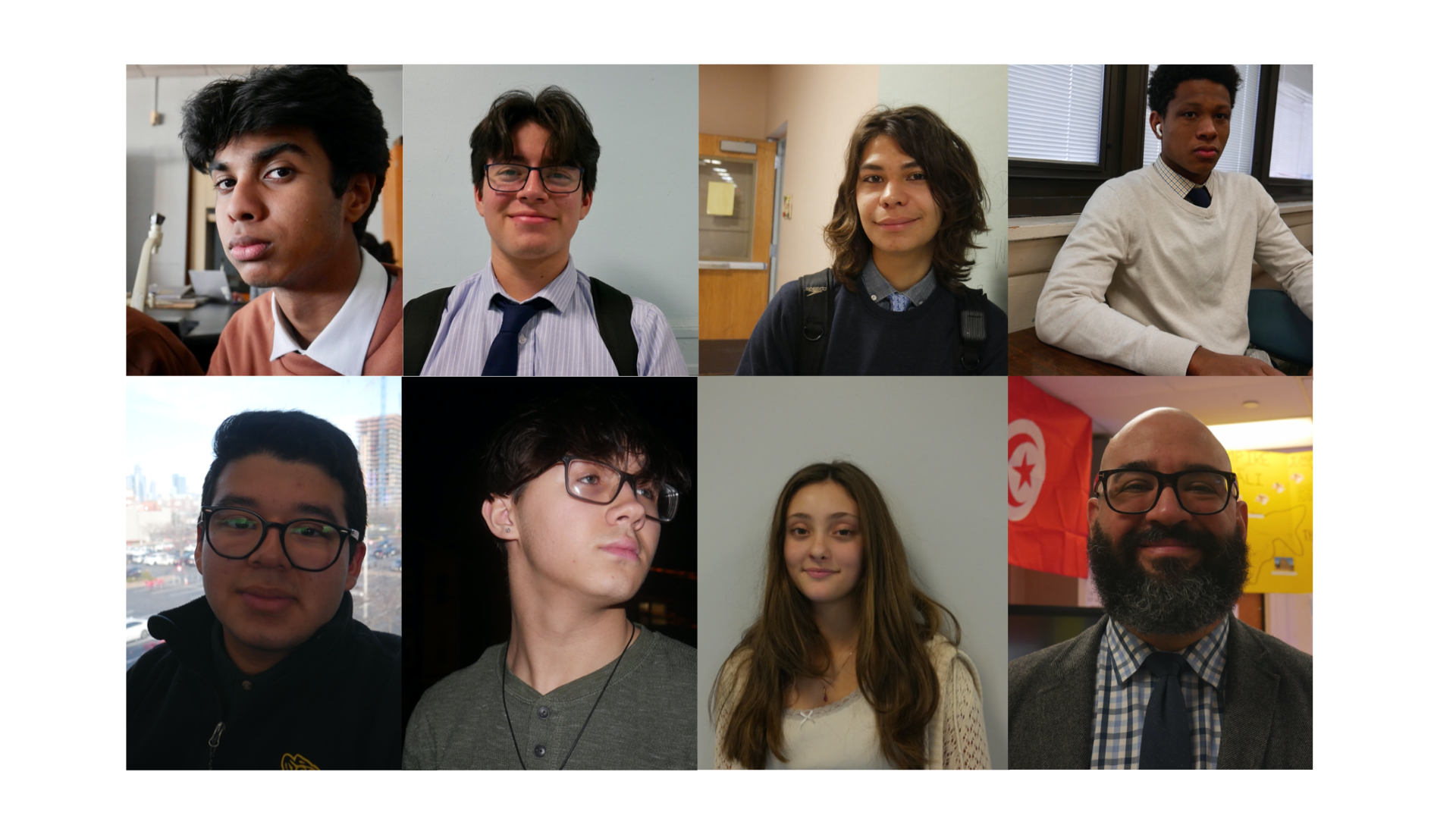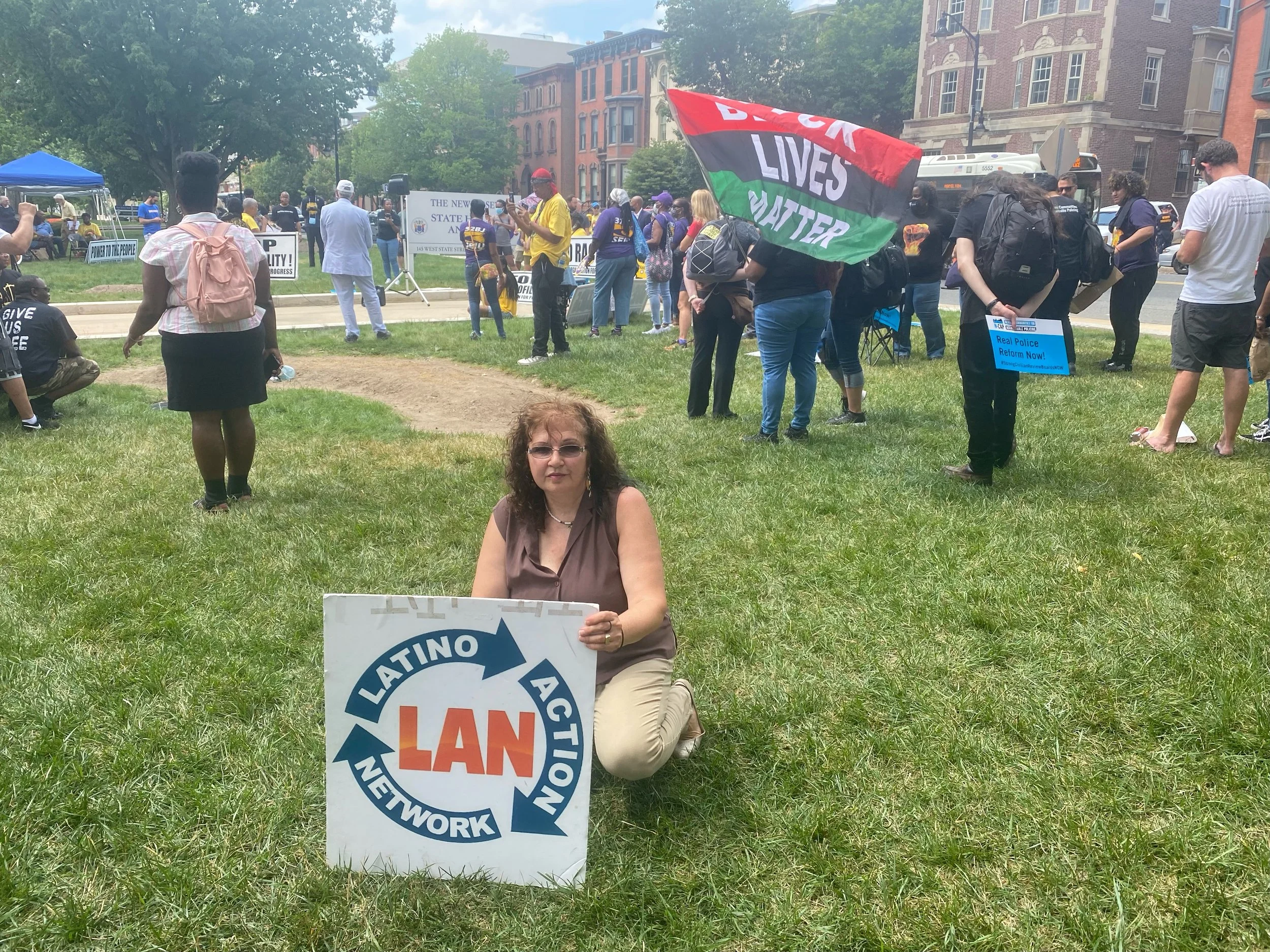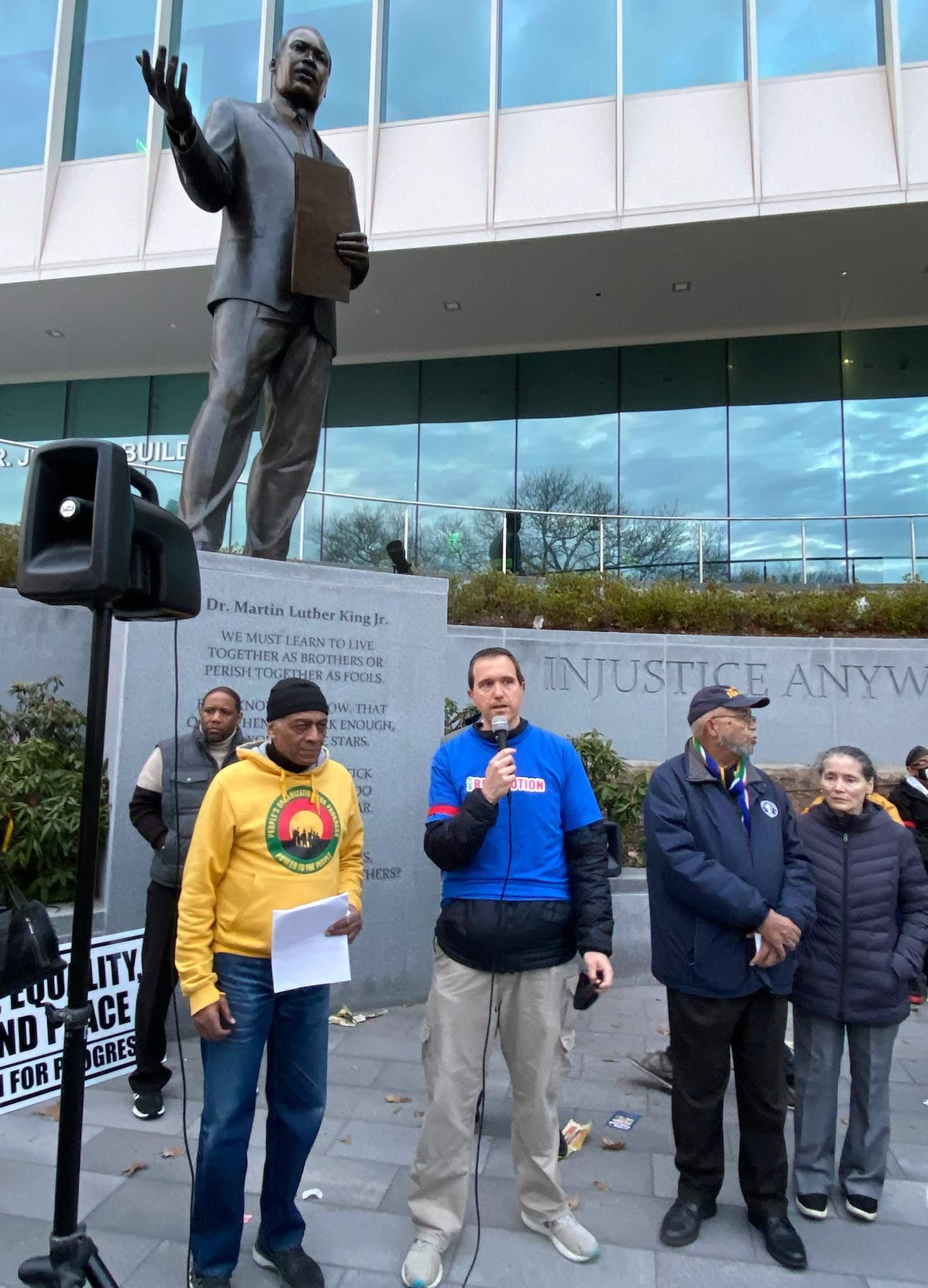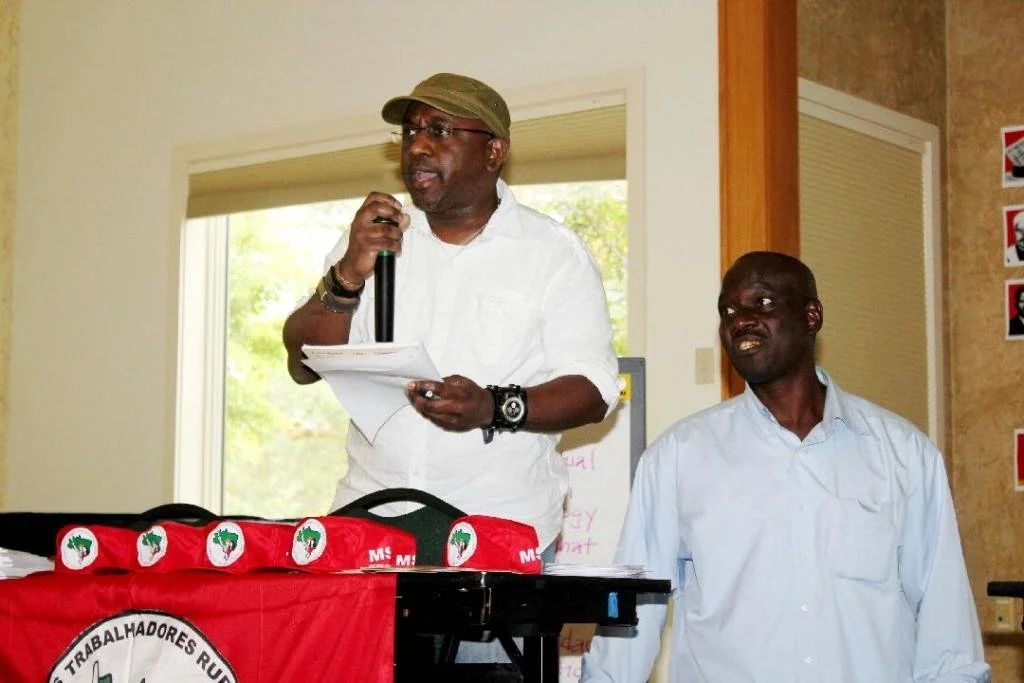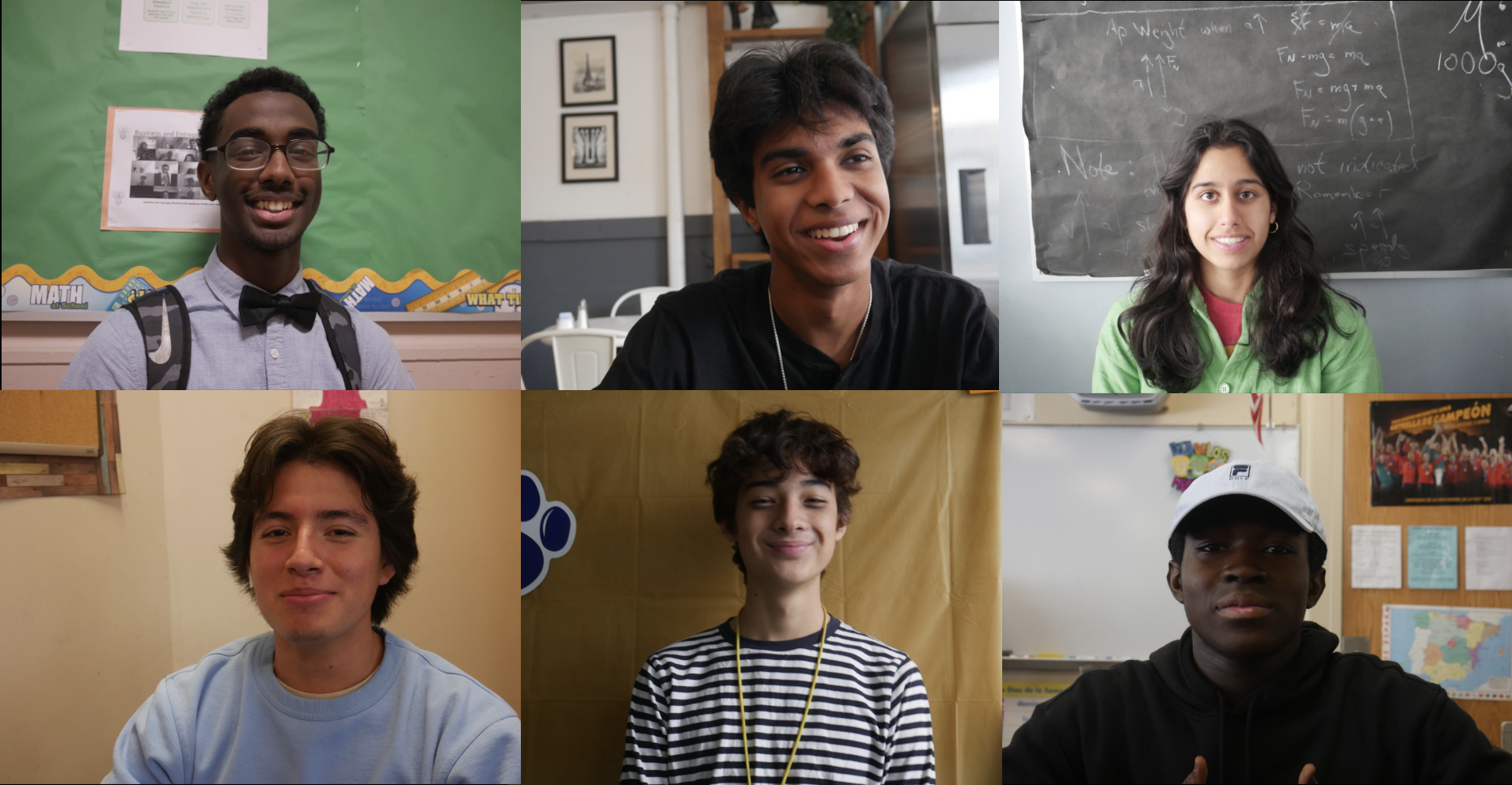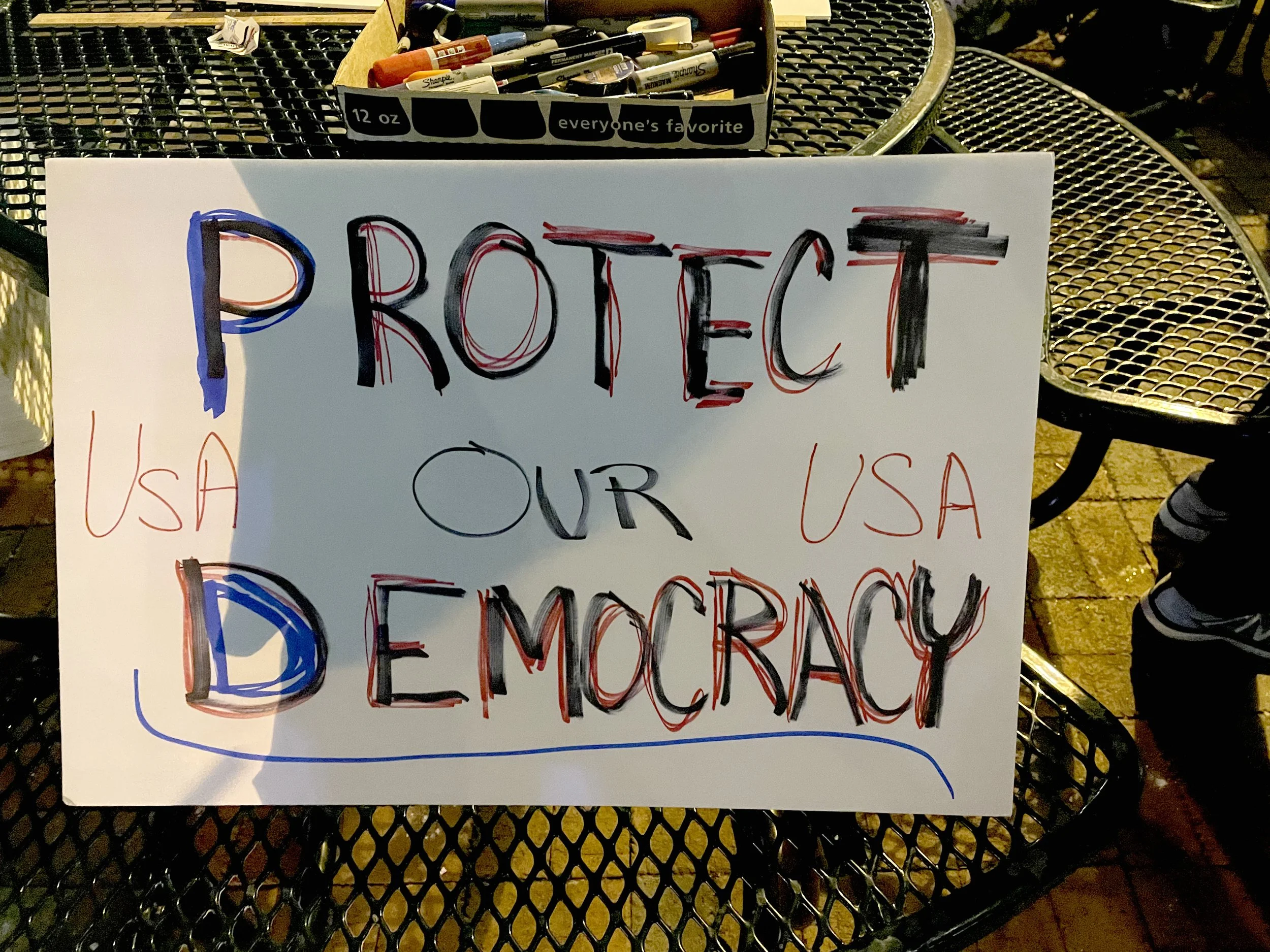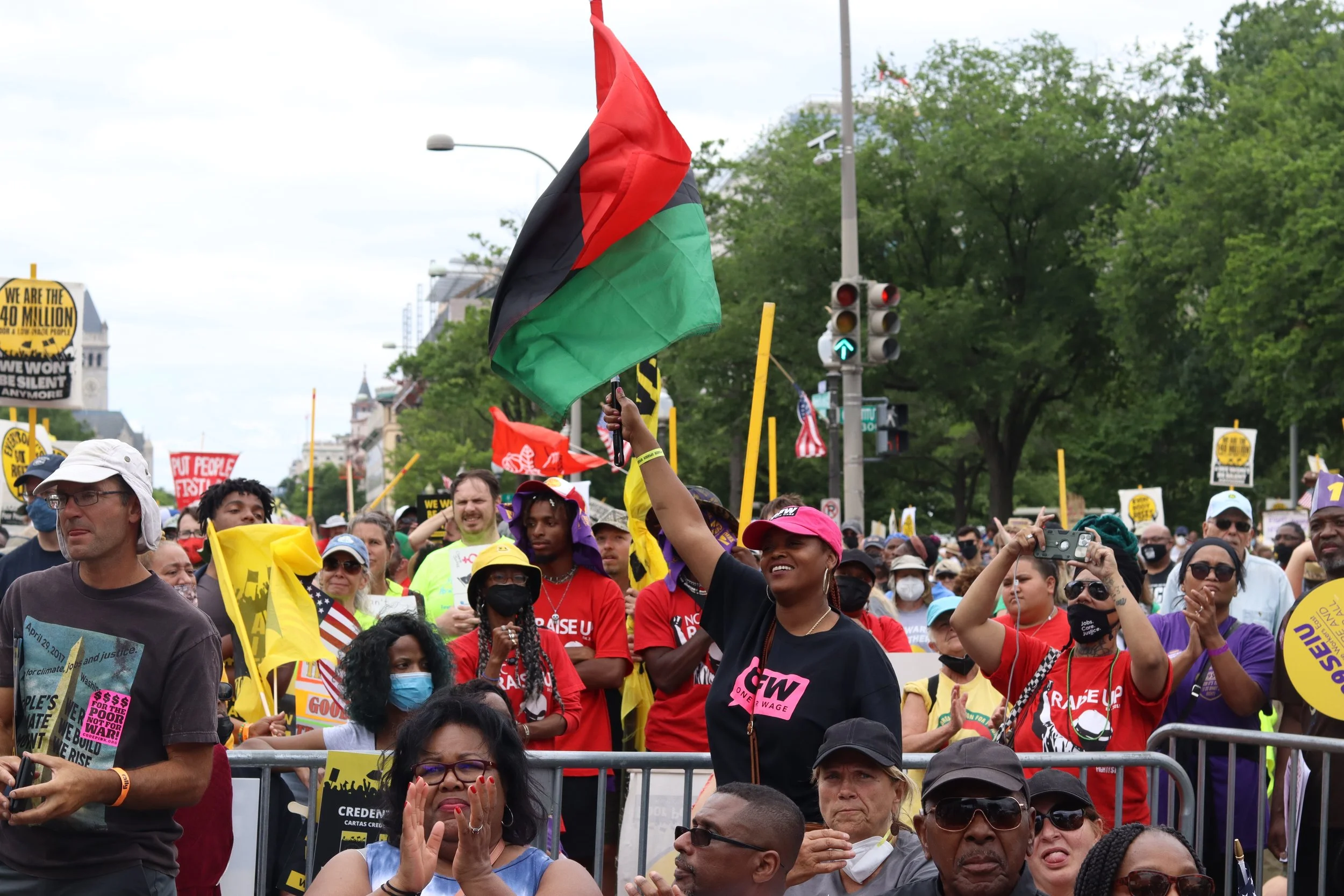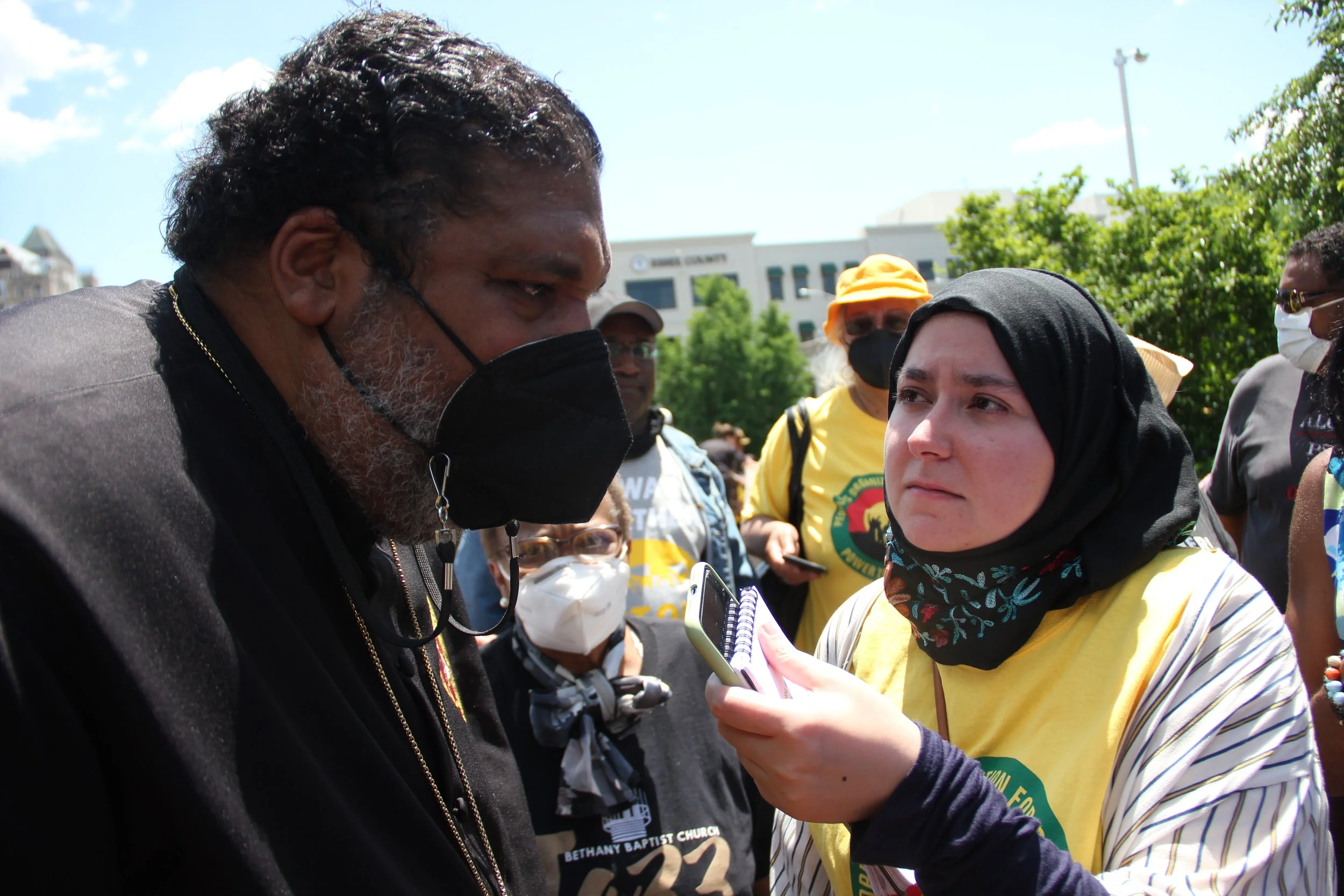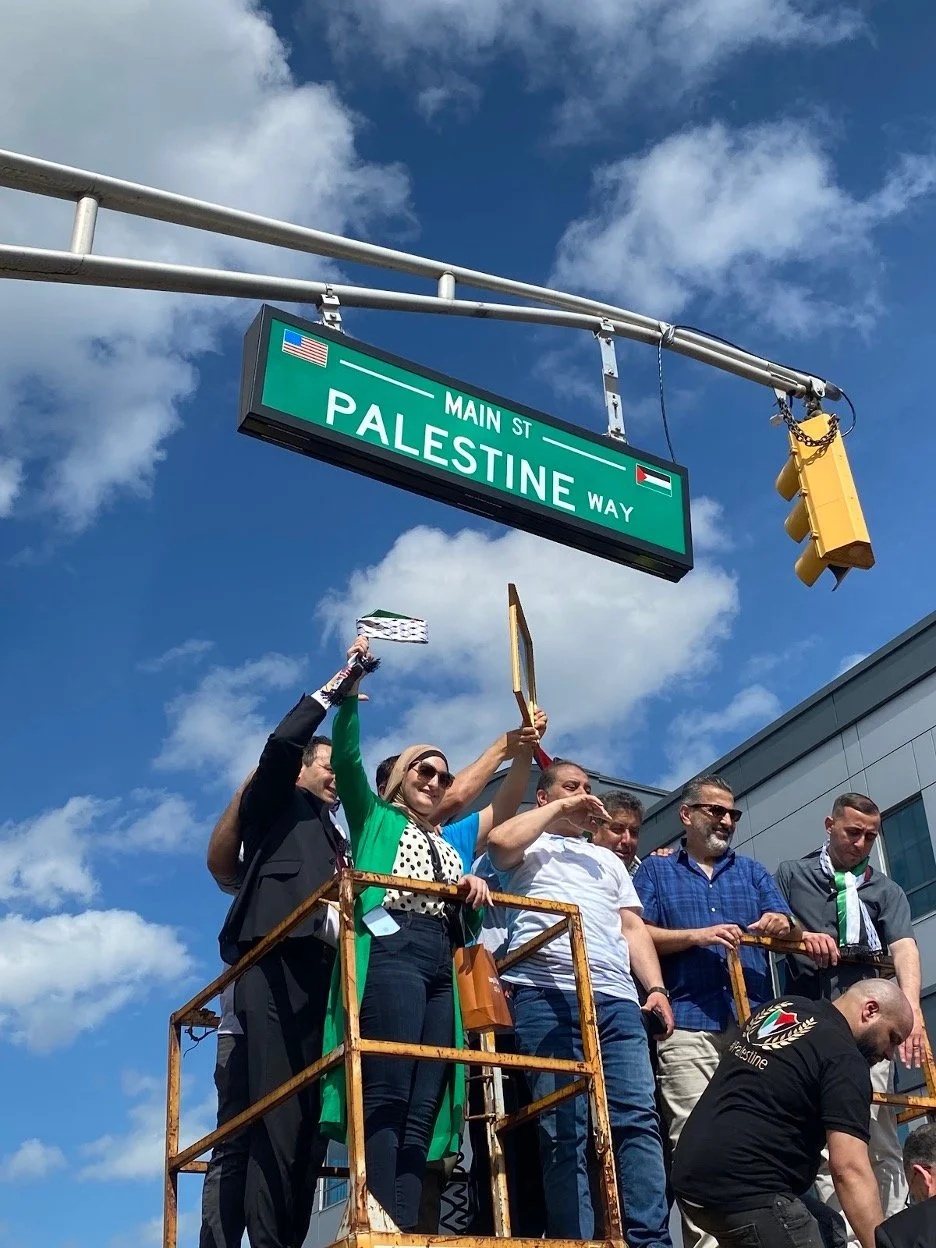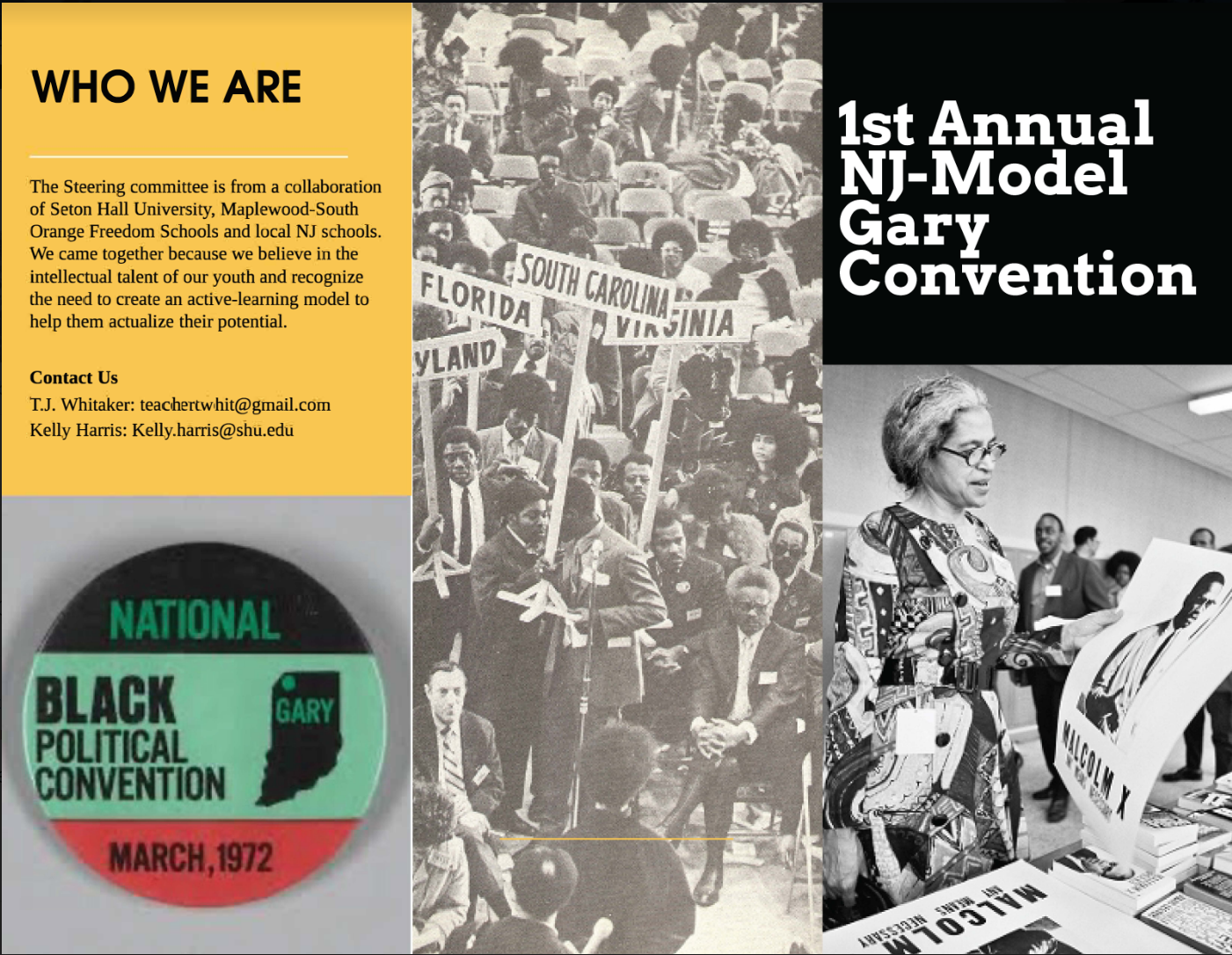Older Democracy and Politics Articles
Return to current Democracy & Policy News
In their own words: N.J. students and the Amistad curriculum
Jersey City- From faraway Florida to our own neighborhoods in New Jersey, a national conversation continues to brew around how African American history, race, and racism are being taught in the nation’s public schools, with the most recent outspoken adversary being Florida Governor Ron DeSantis.. On February 14, 2023, in response to DeSantis’s actions and claims, New Jersey Governor Phil Murphy issued a statement about ongoing efforts to expand the pilot AP African American Studies course from being taught in just one high school to include 25 more districts.
Activists in coalition ringing the bell for human rights: "We Won't Go Back!"
On Sunday, in celebration of the 94th birthday of the Rev. Dr. Martin Luther King, Jr., the People's Organization for Progress (P.O.P) led its annual "MLK March," in activist-coalition form and style. P.O.P representatives say the forces of racism, white supremacy, and fascism seek to drag us back to the pre-Civil Rights era, but this year, they’re saying: “We won’t go back!”
"I believe in what Dr. King stood for and that there is much more work to be done,” said Tyrone Lockett, an activist from Newark, NJ. “I am here to honor him and the ancestors who came before us because of what they went through in the fight to live a free and decent life."
“We are because I am”-Why Cuqui Rivera marches
As a Community DJ, Cuqui Rivera isn't comfortable in front of a room, but she's been forced to become accustomed to being at the frontlines. Rivera, the founder of the Latina Action Network and New Jersey Prison Justice Watch, is a community organizer and Civil Rights advocate. As she's evolved over the years, she said she's come to understand that rallies and activism have purposes. For her, a huge part of it is unity.
“It’s about change”- Why Matt Dragon marches
Matt Dragon used to question the impact of rallies—is it “letting people off the hook by giving them this thing that lets them feel good, but not actually accomplishing anything?” wondered Dragon, Co-chair of Our Revolution, Essex County. One particular rally, the Justice for Carl Dorsey March in Newark, N.J., answered his question. After hearing from the family members and the solace they felt from seeing people show up in numbers, Dragon understood that something bigger came out of rallies, whether it was inspiring people or having laws changed. For this reason, he shows up and believes others should too.
“A calling”—Why Kevin Pierre marches
Some are called to sing, others to preach, but Kevin Pierre’s calling is standing up for the people he calls “the least among us.” Pierre, 47, is Tri-Chair of the New Jersey Poor People’s Campaign, or NJPPC, an organization he joined in the fall of 2018 because he saw too many people who did not reach full potential because of their economic situations.
As Election Day approaches, Jersey City high schoolers have something to say
Will young New Jersey voters cast ballots in the midterms on Tuesday? If recent elections are the measure, the answer is a resounding “Yes.” According to the Center for Information & Research on Civil Learning and Engagement (CIRCLE) at Tufts University, the number of young voters in New Jersey between 18 and 24 grew 16 percent in the last four years. In 2020, the state had the highest youth voter turnout in the country—an impressive 67%. Nationwide, half of Americans between the ages of 18 and 29 voted in the 2020 general election, “one of the highest youth voting rates in recent history and an 11-point increase from 2016,” according to CIRCLE. Racially diverse states can impact voting.
In Defense of the Right to Protest
Lawrence Hamm’s life links the most powerful social movements of the last 50 years. Appointed to the Newark, New Jersey Board of Education in 1971 at the age of 17, he balanced the radical world of Newark’s Black Power Movement with a racially-divided city’s practical public policy concerns. What were his rewards? Harsh criticism in the press, dropping out of Princeton University, being publicly attacked by the man who appointed him—Kenneth Gibson, Newark’s first Black mayor—and an attempted framing on a gun he never had.
The Constitution: A tool for liberation
In the spirit of Democracy Day, Public Square Amplified asked our colleagues Linda McDonald Carter, a community-based attorney and former professor and director of Paralegal Studies at Essex County College, and Gloria J. Browne Marshall, a Pulitzer Center grantee and Professor of Constitutional Law at John Jay College, to explore the themes of American Democracy and our Constitution. Both brought their experience as intellectuals, journalists, activists and women of color to the conversation.
This is what democracy looks like
The Public Square Amplified team turns its lens to street protests as a center of the struggle for democracy. Claiming space in the public square has been the right of citizens throughout history—grassroots organizers in NJ march in the legacy of those who have long fought against tyranny.
Counterintelligence and U.S. Democracy: An inconvenient truth
In 2001 Tom Brokaw’s book on WWII, “The Greatest Generation,” soared to the top of the NY Times Best-Sellers list. Brokaw leaned into the propaganda of the United States—protecting freedom and democracy—by offering this “it is, I believe, the greatest generation any society has ever produced.” While wrapping his comments in hyperbole, he disavowed any concern with historical context.
The state can’t afford to shortchange University Hospital anymore—the community is paying close attention
University Hospital is an essential resource for New Jersey residents. It's the only state-owned public hospital and one of only three Level One trauma centers. It's home to a comprehensive stroke center and a regional perinatal center and serves as a primary care facility for many Newark residents. During the pandemic, it was the Northern Regional COVID center; yet the hospital is outdated and underfunded.
Newark Accords binds University Hospital to the community
As July 12 marks the 55th anniversary of the Newark Rebellion in 1967, Newark's Central Ward faces another transformation. The city's central but aging care and teaching facility, University Hospital, has become the focus of a long-overdue redevelopment project to renovate and expand the hospital and its health services. The project has the potential to build on the promises of the historic Newark Accords, also known as the Newark Agreements of 1968—the only contract of its kind in the United States codifying a hospital's commitment to promoting the public health of a community. But it is also a cause of concern for many Newark residents and activists.
Thousands gather in Washington D.C. for a moral meeting in the streets
On June 18, activists, leaders and organizers joined over 30,000 people from across the nation on Third and Pennsylvania Avenues in Washington D.C. for the Mass Poor Peoples and Low-Wage Workers' Assembly and Moral March. Organized by the Poor People's Campaign (PPC), citizens gathered to demand urgent attention to economic and political policies that negatively and disproportionately affect poor and low-income communities in America. PPC called on the government to take responsibility for the stark wealth gap.
A war on poverty: the Poor People’s Campaign (PPC) brings the urgency of now to New Jersey
Not only is the United States one of the world's wealthiest countries, but New Jersey is one of the richest states in the nation. The annual Gross Domestic Product (GPD) or total market value in the U.S. is around $20 trillion, and New Jersey is home to booming industries and two of the wealthiest counties in the country, Monmouth and Bergen County, where the average household earns $150,000. Despite abundant wealth and productivity, nearly half the nation is poor and 41 percent of New Jerseyans struggle to afford housing, child care, food, taxes and even a cellphone plan, the basics needed to live and work in the modern economy.
NJ Home Bakers still facing food safety stigma
In the eight months since New Jersey’s Cottage Food regulations went into effect, allowing home producers of non-TCS goods to sell their wares, the Department of Health has issued approximately 500 permits, and that number is rising every week. These newly minted Cottage Food Operators, the majority of them home bakers, are taking advantage of the spring and summer “celebration season” to grow their businesses and clientele by producing treats for graduations, communions, bridal showers, and weddings.
Model Gary Convention inspires local students and educators
New Jersey middle and high school students participated in the Model Gary Convention in Newark this spring. The event marked fifty years since the first National Black Political Convention (also known as the Gary Convention) took place in Indiana in March of 1972. In keeping with the original convention, student delegations gathered at Seton Hall from Friday, Apr. 29 to Saturday, Apr. 30 to discuss solutions to societal injustices and issues of importance to the Black community.
Paterson renames part of Main Street Palestine Way, defying the erasure of Palestinian identity
On May 15, Paterson officially renamed a part of Main Street "Palestine Way," thanks to Alaa "Al" Abdelaziz, the first Palestinian-American city councilman and council president Maritza Davila who sponsored the renaming resolution. The city council voted 8-1 to approve the renaming on March 29, but "Palestine Way" isn't just another street sign.
Model Gary Convention honors history and gives youth an exercise in civics
Fifty years since the first National Black Political Convention (also known as the Gary Convention) took place in Gary, Indiana, Newark middle and high school students are participating in a commemorative Model Gary Student Convention in Newark. Organizers say the behind-the-scenes work of students to develop position papers on topics including education, health, economics, and politics honor the original convention's goal of convening Black Americans to discuss and advance solutions to promote equity and confront the pressing societal injustices of our times. Participation in the model conventions, organizers hope, will impress upon students that they have the power to advocate for themselves and their communities right now.

